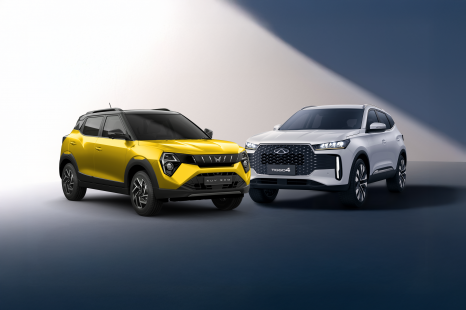

Andrew Maclean
2025 Mahindra XUV 3X0 vs Chery Tiggo 4: Spec battle
1 Month Ago

Marketplace Editor
Nissan Australia may be working on a Toyota Yaris Cross Hybrid rival after all.
The Juke Hybrid was revealed earlier this year for the European and UK markets, and at the time Nissan’s local division said it was off the table. This week, the brand’s local chief has said it could in fact be on the cards for us.
“It’s definitely something we’re looking at, but I don’t have a date, if it’s going to launch, or if we’ve decided it’s actually coming,” said Adam Paterson, managing director for Nissan Australia.
“We’re always looking at the global Nissan product range to see what could work for our market… it’s just ensuring that we’ve got the right product for the market and the price point that customer and that segment is after.”
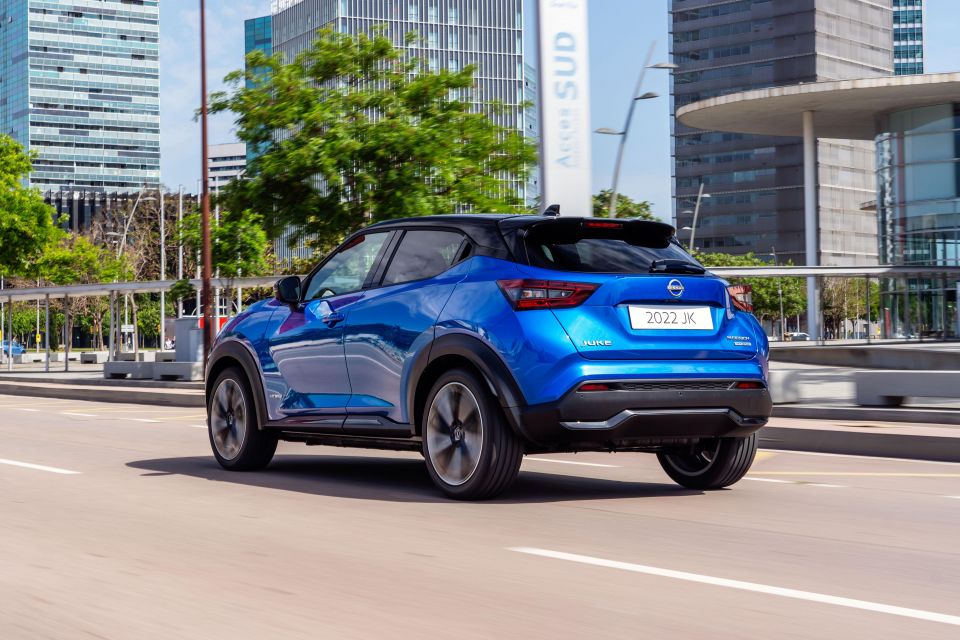
When asked if Australia’s access to the Juke Hybrid would be hampered by a lack of emissions regulations, Mr Paterson said it was less of an issue for this product than it is for something like the Ariya EV.
Revealed in March, the Nissan Juke Hybrid teams a 69kW/148Nm 1.6-litre petrol engine with a 36kW/205Nm electric motor and 1.2kWh battery pack – the same drivetrain is used in the Renault Captur E-Tech Hybrid available abroad.
While Nissan doesn’t quote system outputs, the Renault Captur E-Tech claims to offer a combined 104kW with the same hybrid system.
The Japanese brand says the Juke Hybrid brings a 25 per cent power bump over the existing three-cylinder turbo petrol engine, while reducing fuel consumption by a not-insignificant 40 per cent in the urban test cycle and 20 per cent overall in combined testing.
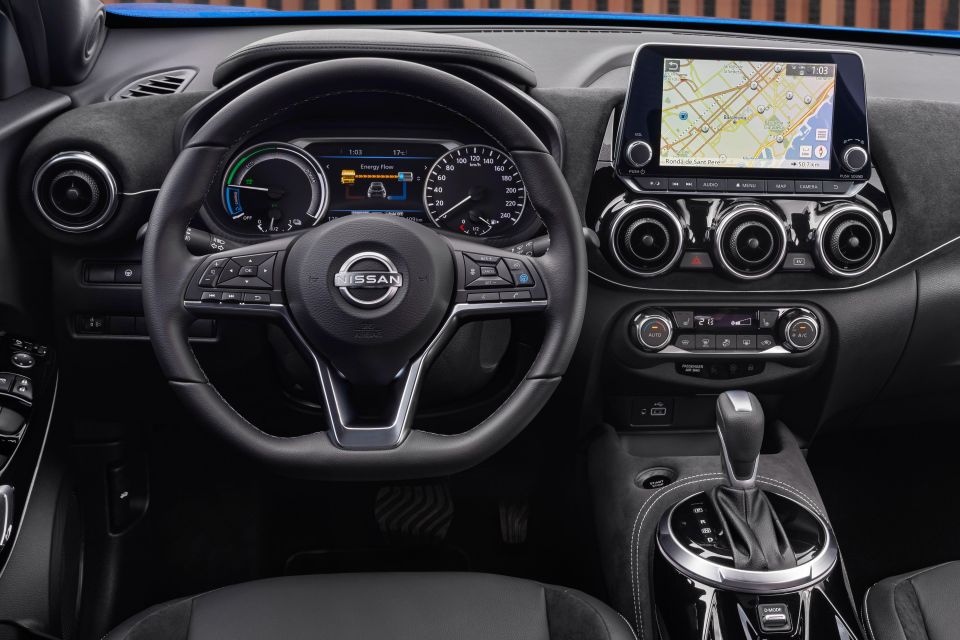
Speaking of, preliminary WLTP figures at launch are 5.0-5.2L per 100km on the combined cycle, with CO2 emissions rated at 114-117g/km.
Drive is sent to the front wheels via a ‘multi-modal’ gearbox that uses dog clutches in place of conventional synchroniser rings to shift the four ‘ICE’ gears and two ‘EV’ ratios’. All vehicle starts are 100 per cent electric, and Nissan says the transmission is designed to reduce friction and mitigate the “rubber band” sensation of hybrids equipped with e-CVTs.
As you’d expect, the Nissan Juke Hybrid offers regenerative braking, including an e-Pedal mode that will decelerate the vehicle at 0.15g to slow the Juke to “creep speed”, or around 5km/h. Unlike the Leaf, which debuted the e-Pedal system, the Juke Hybrid won’t come to a complete stop – similar to the X-Trail e-Power.
Additionally, Nissan says the Juke Hybrid can do up to 80 per cent EV drive in urban settings, aided by first ‘gear’ being electric drive only.
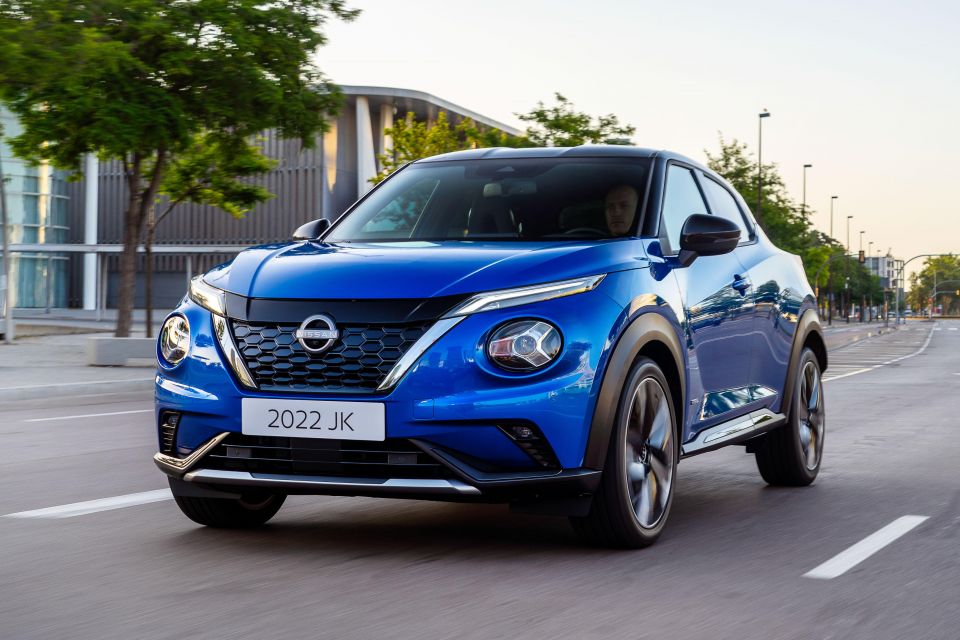
The Juke Hybrid receives a number of external and internal changes, including a new mesh grille, modifications to the body work for better air flow, and a rear axle cover – some of which are coming to combustion-engined models as well. There’s also a new 19-inch aero wheel option derived from the Ariya electric crossover.
Further, there’s a hybrid-specific power meter in place of a tacho, model-specific menus and displays.
The Juke Hybrid went into production in September at Nissan’s Sunderland Plant in the UK, the same facility that supplies petrol versions of the Juke and the Qashqai to the Australian market – as well as the Leaf EV.
The electrified Qashqai e-Power is also being produced at the Sunderland factory, and is due to hit the Australian market sometime in 2023.
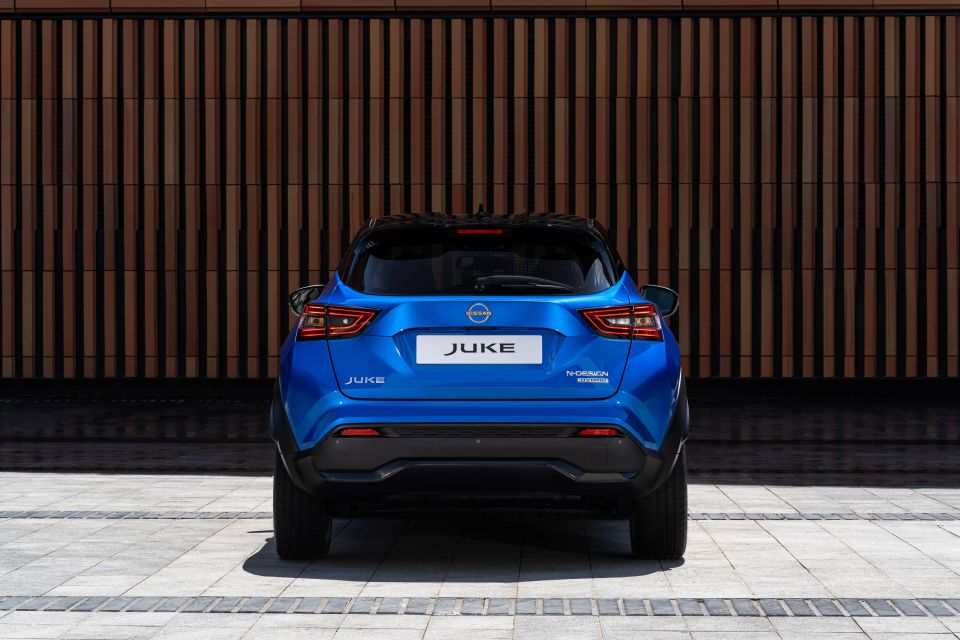
Currently, the Nissan Juke is on sale in Australia in five trim levels all offering the same powertrain, an 84kW/180Nm 1.0-litre three-cylinder turbo petrol engine paired with a seven-speed dual-clutch automatic transmission as standard.
An updated 2023 range is on the way, due in the early stages of next year priced from $28,390 before on-road costs. Read our full price and specs breakdown here.
To the end of November 2022, the Juke has returned 1081 registrations in Australia, down 50.4 per cent on the same period in 2021. By comparison, the rival Mazda CX-3 has achieved 9839 units in the same amount of time.
As of today, the only rival nameplate to offer a petrol-electric hybrid drivetrain in the Australian market is the Toyota Yaris Cross, which is sitting at 7686 registrations year to date, and third placed in the segment behind the aforementioned CX-3 and the Hyundai Venue (8119 units).
Would you consider a Juke Hybrid? Tell us your thoughts in the comments!
MORE: 2022 Nissan Juke Hybrid revealed MORE: Everything Nissan Juke
Where expert car reviews meet expert car buying – CarExpert gives you trusted advice, personalised service and real savings on your next new car.
James is an automotive journalist based in Melbourne, Australia. Before joining CarExpert.com.au in 2020, James has worked at leading auto media outlets including Carsales and CarAdvice, as well as at Pulse agency for Ford Australia's communications team. In 2019 James made Mumbrella's 'Top 20 most prolific web authors in Australia' list after publishing 1,360 articles between March 1, 2018 and February 28, 2019 for CarAdvice. James is also an Ambassador for Drive Against Depression – an Australian charity whose mission is to support mental wellness through the freedom of driving and a shared love of cars.


Andrew Maclean
1 Month Ago
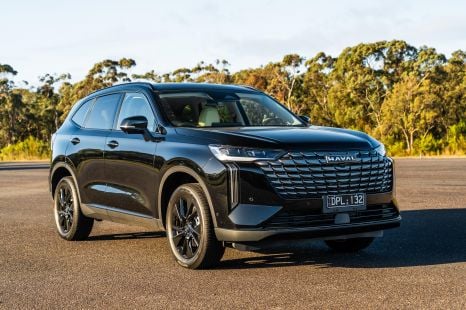

Josh Nevett
28 Days Ago
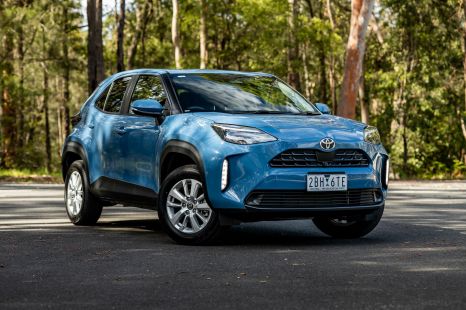

Matt Campbell
22 Days Ago
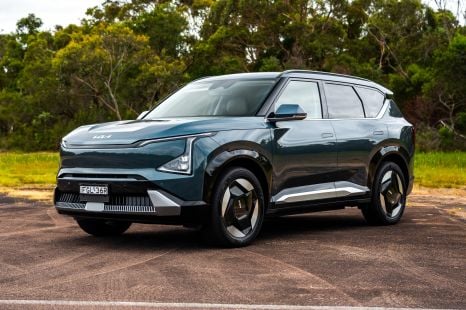

James Wong
15 Days Ago
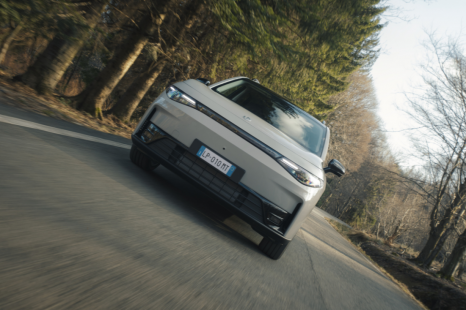

William Stopford
14 Days Ago
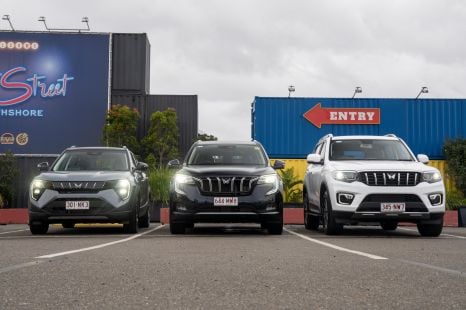

CarExpert.com.au
8 Days Ago